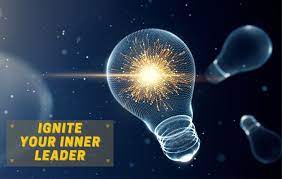Developing Critical Thinking, Leadership, and Problem-Solving Skills: A Curated Reading Guide for Lifelong Learners and Professionals
Executive Summary
In a rapidly changing world marked by uncertainty, complexity, and continuous innovation, professionals and students alike must cultivate three foundational skills: critical thinking, leadership, and problem solving. These core competencies are not only vital to academic success and career advancement but are increasingly necessary for navigating real-world challenges with agility and integrity.
This white paper presents a curated reading list of authoritative academic texts and influential trade publications that together offer a robust foundation for mastering these essential capabilities. Drawing on expert reviews, university course syllabi, and best-practice leadership guides, the selection serves as a compass for learners, educators, and organizations looking to enhance strategic thinking and decision-making across industries.
1. Critical Thinking
Critical thinking encompasses logical reasoning, evaluation of evidence, argument construction, and the discernment of cognitive biases. The selected resources below develop the intellectual tools necessary for academic excellence, professional judgment, and civic participation.
Core Readings
- Critical Thinking: Your Guide to Effective Argument, Successful Analysis and Independent Study – Tom Chatfield
Offers a practical, reader-friendly approach to identifying assumptions, analyzing logic, and constructing clear arguments. - Critical Thinking, Logic, and Argument – Athabasca University Press
An open-access academic textbook designed for university-level logic and reasoning courses, featuring exercises and applied examples. - Thinking, Fast and Slow – Daniel Kahneman
A Nobel-winning psychological framework introducing "System 1 and System 2" thinking, essential for understanding intuition vs. reasoning. - The Art of Thinking Clearly – Rolf Dobelli
A popular guide to avoiding cognitive biases, featuring over 90 concise lessons. - Fooled by Randomness – Nassim Nicholas Taleb
Challenges assumptions about cause and effect, urging readers to question the role of luck in outcomes.
📌 Use Case: University courses in philosophy, logic, and decision theory; executive education programs; business analytics and data science teams.
2. Leadership
Leadership today demands more than charisma or technical expertise—it requires emotional intelligence, adaptability, and the ability to mobilize people toward common goals. The following books reflect the latest insights from business psychology, neuroscience, and organizational behavior.
Core Readings
- Primal Leadership – Daniel Goleman, Richard Boyatzis, Annie McKee
Pioneers the idea of "resonant leadership" driven by emotional intelligence. - Leaders Eat Last – Simon Sinek
Explores the biology of trust and how empathetic leadership fosters teamwork and engagement. - The First 90 Days – Michael D. Watkins
A tactical playbook for new leaders to navigate transitions and establish credibility. - Multipliers – Liz Wiseman
Highlights how great leaders amplify the intelligence of their teams rather than diminishing it. - Harvard Business Review Leader’s Handbook – Ron Ashkenas & Brook Manville
A practical guide integrating HBR's vast research into a roadmap for effective leadership across roles.
📌 Use Case: Leadership training, MBA programs, talent development initiatives, and C-suite coaching.
3. Problem Solving
Problem solving spans disciplines—from business strategy to scientific discovery. These books offer frameworks, methods, and mindsets to break down complexity, ideate solutions, and learn from failure.
Core Readings
- Problem Solving 101 – Ken Watanabe
Originally written for Japanese schoolchildren, this deceptively simple book is used by professionals worldwide for structured thinking. - Sprint – Jake Knapp et al.
A Design Sprint methodology that enables rapid innovation in five days—perfect for startups and cross-functional teams. - Black Box Thinking – Matthew Syed
Argues that embracing failure is key to innovation and improvement, backed by case studies from aviation to healthcare.
📌 Use Case: Corporate innovation teams, startup incubators, management consulting, STEM education.
Summary Table of Key Readings
|
Category |
Title / Author |
Type |
|---|---|---|
|
Critical Thinking |
Critical Thinking, Logic, and Argument (AU) |
Textbook |
|
Critical Thinking (Tom Chatfield) |
Textbook |
|
|
Thinking, Fast and Slow (Kahneman) |
Trade/Text |
|
|
The Art of Thinking Clearly (Dobelli) |
Trade |
|
|
Fooled by Randomness (Taleb) |
Trade |
|
|
Leadership |
Primal Leadership (Goleman et al.) |
Textbook/Trade |
|
Leaders Eat Last (Sinek) |
Trade |
|
|
The First 90 Days (Watkins) |
Trade/Text |
|
|
Multipliers (Wiseman) |
Trade |
|
|
HBR Leader’s Handbook (Ashkenas, Manville) |
Textbook/Trade |
|
|
Problem Solving |
Problem Solving 101 (Watanabe) |
Textbook/Trade |
|
Sprint (Knapp et al.) |
Trade |
|
|
Black Box Thinking (Syed) |
Trade |
Strategic Recommendations
- Educators: Integrate these titles into university courses on communication, logic, leadership, and management.
- Corporate L&D Teams: Develop tailored reading programs and workshops based on these books for leadership and innovation training.
- Individuals: Use this guide as a self-directed curriculum to sharpen essential 21st-century skills.
- Policy Makers & Think Tanks: Promote access to these readings in public libraries and national skills development programs.
How KeenComputer.com and IAS-Research.com Can Help
KeenComputer.com
- Offers custom e-learning platforms to host and track leadership and critical thinking courses using these texts.
- Provides interactive content development based on the Design Sprint and Black Box Thinking frameworks for innovation programs.
- Supports SME digital transformation with training modules built on critical reasoning and structured decision-making.
IAS-Research.com
- Facilitates workshops and consulting on problem solving and leadership using evidence-based techniques from these books.
- Conducts literature reviews, curriculum design, and evaluation for educational institutions and corporate academies.
- Builds applied research projects to assess the impact of leadership and thinking-skills development in organizations.
Conclusion
In an age where knowledge is abundant but wisdom is scarce, critical thinking, leadership, and problem-solving skills serve as the linchpins of meaningful progress—for individuals, organizations, and societies. This curated reading list and accompanying strategy offer a pragmatic path to cultivating these essential abilities, empowering lifelong learners and leaders to meet the future with clarity, competence, and purpose.



